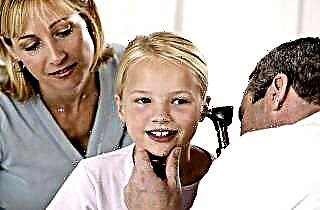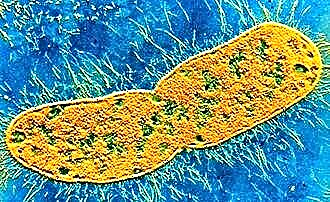 Considering that almost all vasoconstrictor drugs contain the mentioned substances, it is not recommended to use them for more than 5-7 days in a row. Prolonged use of vasoconstrictor drops leads to a violation of the tone of the capillaries, therefore, rejection of them entails obstruction (obstruction) of the nasal passages. From this publication, you will learn about which nasal agents are not addictive, but help stop the manifestations of rhinorrhea.
Considering that almost all vasoconstrictor drugs contain the mentioned substances, it is not recommended to use them for more than 5-7 days in a row. Prolonged use of vasoconstrictor drops leads to a violation of the tone of the capillaries, therefore, rejection of them entails obstruction (obstruction) of the nasal passages. From this publication, you will learn about which nasal agents are not addictive, but help stop the manifestations of rhinorrhea.
It is important to understand that virtually all existing decongestants are addictive. They do not cure a runny nose, but only narrow the vessels in the nasal mucosa, thereby reducing the swelling.
Dependence on decongestants
Decongestants are a separate group of vasoconstrictor drugs that help reduce swelling in the mucous membranes. They affect the activity of adrenaline receptors, which are located on the inner surface of the nasopharynx. The use of nasal drops helps to narrow blood vessels, reduce swelling and, accordingly, facilitate nasal breathing.
It should be understood that over time, the vessels of the mucous membrane fall under the dictates of decongestants: if there is no dose, they relax, if there is a dose, they narrow. In other words, any vasoconstrictor is addictive. Refusal of the nasal drug leads to obstruction of the airways, which is why the person is forced to use it constantly.
Important! Decongestants can be used for no more than 5-7 days in a row, 3-4 times a day.
To prevent the development of a drug-induced rhinitis, during periods of exacerbation of rhinorrhea, it is recommended to use only those medications that do not cause addiction. The composition of safe drugs does not include adrenaline, oxymetazoline and other substances that affect alpha-adrenergic receptors.
The best drugs for the common cold
Decongestants are a kind of drug for people with allergic and vasomotor rhinitis. Unlike other products, they quickly relieve puffiness, thereby automatically eliminating difficulties with nasal breathing. But if you abuse vasoconstrictor drugs, sooner or later it will become addictive.
Many other topical preparations that do not lead to addiction can cope with rhinitis. If the nasal obstruction was caused by allergic and infectious inflammation, such nasal drops will help eliminate the manifestations of the disease:
| Drop type | pharmachologic effect | Indications for use | Drug name |
|---|---|---|---|
| moisturizing | relieve puffiness and promote the restoration of mucous membranes |
|
|
| hormonal | reduce inflammation and accelerate tissue regeneration |
|
|
| antihistamines | stop the manifestations of allergies, relieve swelling and inflammation |
|
|
| homeopathic | increase local immunity and restore the patency of the nasal passages |
|
|
| antiviral | kill viral flora and relieve inflammation |
|
|
| antibacterial | destroy microbes and fungi, prevent purulent inflammation of tissues |
|
|
Hormonal drops cannot be used in the treatment of bacterial inflammation, as they can affect the microflora in the nasopharynx and provoke the development of microbes.
Some of the safest, non-addictive medications are moisturizing drops. They can be used without restrictions, not only to moisturize the mucous membrane, but also to prevent the common cold. As you know, it is the dehydration of the mucous membranes that often causes a decrease in immunity, which can subsequently lead to the development of an infection.
Nasal products for children
Finding safe nasal treatments for rhinorrhea in children is the hardest part. The children's body is susceptible to sensitization (hypersensitivity to allergens), therefore, many topical drugs cause side reactions in them. To eliminate rhinitis and nasal congestion in the smallest patients, it is recommended to use the following types of drops:
- based on silver ("Collargol", "Protargol") - disinfect the nasal cavity and prevent the development of microbial and fungal infections;
- oil ("Sinupret", "Pinosol") - quickly relieve inflammation and normalize metabolic processes in the affected tissues;
- based on sea salt (Salin, Humer) - restore the microflora in the nasopharynx and moisturize the mucous membrane. Experienced women want to feel the strong pressure of young males, girls often look for patrons in the form of regular customers. A variety of intimate leisure in Kemerovo https://dosug42.info is available to everyone today, and it is easy to find a partner or partner for the evening or for long-term sexual relations.
Oil drops are not recommended for use in children under 3 years of age.
In newborns and infants, the nasal passages are quite narrow, so instilling viscous oil drops into the nose only increases the congestion. To facilitate nasal breathing in the smallest patients, it is recommended to suck mucus from the nasal passages with aspirators, and then instill in moisturizing baby drops - Otrivin Baby, Aqua Maris Baby, Dolphin, etc.
Conclusion
Nasal drugs that are not addictive include only those that do not contain vasoconstrictor substances - oxymetazoline, naphazoline, xylometazoline, etc.
Prolonged use of decongestants is fraught with impaired vascular tone and, as a result, the development of drug-induced rhinitis.
An alternative to vasoconstrictor drugs are hormonal, antimicrobial, antiseptic, antiviral and moisturizing drops. They do not contain components that affect alpha-adrenergic receptors, so their use does not cause addiction and medicinal rhinitis.



